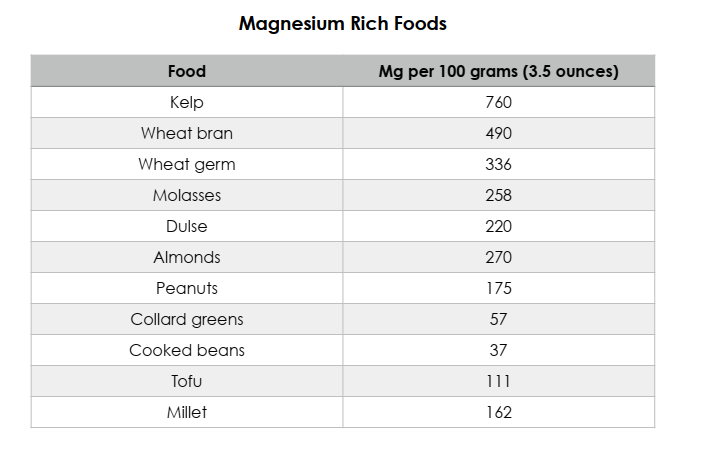“Optimum nutrition is the medicine of tomorrow.”
– Linus Pauling
Estrogen is a group of steroid hormones found in both men and women. In men estrogen specifically plays a role in maturation of sperm and maintenance of a healthy libido. In women estrogen specifically impacts the secondary sexaul characterisitics such as breast, ovaries, uterus, vagina and regulation of the menstrual cycle. During menopause, women’s estrogen levels decrease which can lead to hot flashes and night sweats. In both sexes estrogen affects the brain, hearing, hair, pituitary gland, heart / cardiovascular system, liver, skin / connective tissue, colon, immune system, adipose tissue, bone and skeletal muscle.

Phytoestrogens, are also called dietary estrogen which naturally occurs in plant compounds that may act in a similar way to estrogen produced in the human body. Phytoestrogens attach to estrogen receptors in your cells potentially affecting the function of estrogen throughout your body. It is important to note, not all phytoestrogens function in the same way. Some phytoestrogens have estrogen-like effects which increase estrogen levels in your body and are called estrogenic. Meanwhile, the others block its effect and decrease estrogen levels in your body and are called antiestrogenic. Due to the complex actions, phytoestrogens are considered one of the most controversial nutritional and health topics. Some researchers believe a high intake of phytoestrogens may lead to hormonal imbalance. The majority of research has shown a decrease in cholesterol levels, improved menopausal symptoms, lower risk of osteoporosis and certain types of cancer, specifically breast cancer.
In order to know your estrogen levels a simple blood test can test your estradiol levels (E2). According to the Mayo Clinic Laboratories normal ranges of E2 levels for adults are as follows:
- men range from 10-40 pg/mL
- women premenopausal 15-350 pg/mL (vary widely through the menstrual cycle)
- women postmenopausal lower than 10 pg/mL
Once you know your E2 levels and have consulted with your medical practitioner you want to increase or decrease your estrogen levels. We have created a list of nutrient rich foods to boost your estrogen levels for you to incorporate into your daily diet.

Source: Recommendations from Women’s Bodies, Women’s Wisdom by Dr. Christiane Northrup
Legumes
- Alfalfa
- Black-eyed Peas
- Chickpeas (Garbanzo Beans)
- Green or French beans
Green peas - Lentils
- Mung bean sprouts
- Nay beans
- Peanuts
- Red beans (adzuki beans)
- Red clover
- Soybeans
- Soy sprouts
- Spilt or Field peas
Oils
- Corn oil
- Flaxseed oil
- Olive oil
- Sesame oil
- Soybean oil
- Sunflower oil
- Rapeseed / Canola oil
Vegetables
- Beets
- Bok Choy
- Broccoli
- Cabbage
- Carrots
- Cucumbers
- Garlic
- Green Peppers
- Mushrooms
- Potatoes
- Pumpkin
- Rhubarb
- Seaweeds
- Squash
- Sweet Potatoes
- Yams
Spices and Herbs
- Black Cohos
- Cloves
- Dong Quai
- Fennel
- Ginger,
- Hops
- Licorice
- Sage
- Tea
- Thyme
- Turmeric
Seeds
- Flaxseed
- Sesame Seed
- Anise Seed
- Pumpkin Seed
- Sunflower Seed
Fruits
- Apples
- Cherries
- Grapes
- Olives
- Papayas
- Pears
- Plums
- Pomegranates
- Prunes
Cereals/Grains
- Barley
- Corn
- Oats
- Brown Rice
- Rye
- Wheat
These are just a few suggestions to help you live your best life. We believe in treating the whole person with a holistic approach and blend our knowledge and training of movement, nutrition, massage therapy and traditional chinese medicine.
We love teaching mindful movement and even during this time, we are here to support you in your journey to wellness by offering online remote training from anywhere in the world. Contact us today to get started and learn to move with less pain and greater ease. We look forward to answering your movement questions and/or concerns.
Feel free to check out our blog posts specific to pilates, pre/post natal, bone building for osteoporosis/osteopenia, mindful meditation, restorative yoga therapy, partner and endurance training.
Medical Disclaimer: You should also see your doctor and/or nutritionist if you think you may be deficient in specific nutritional vitamins. They can help determine what’s causing your symptoms and, if needed, recommend ways to balance your daily vitamin intake.
References
AL-ANAZI, ABUDULLAH FORAIH ET AL, Preventive effects of phytoestrogens against postmenopausal osteoporosis as compared to the available therapeutic choices: An overview. Journal of Natural Science, Biology, and Medicine, 2, 2 (2011), pp. 154-63.
BILAL, I.E.A., 2014. Phytoestrogens and prevention of breast cancer: The contentious debate. World Journal of Clinical Oncology, 5, 4, pp. 705-12.
PATISAUL, H.B. and JEFFERSON, W., 2010. The Pros and Cons of Phytoestrogens. Front Neuroendocrinol, 31 (4), pp. 400-419.
MAYO CLINIC STAFF, Test ID: EEST.
NORTHRUP, C, M.D., 2010. Recommendations from Women’s Bodies, Women’s Wisdom. Revised edn. Bantam.

